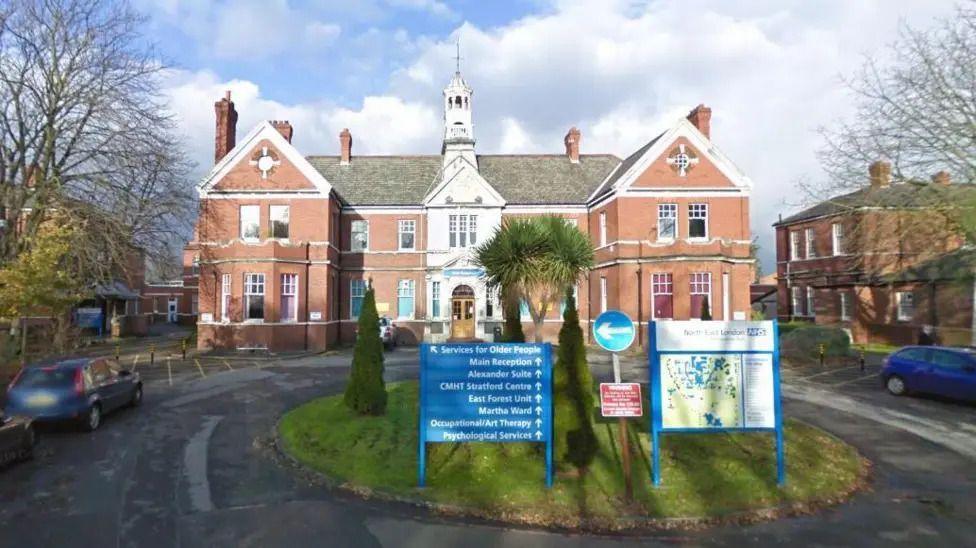Staff would not have foreseen patient death - court

Alice Figueiredo had appeared positive before her death, the court heard
- Published
A jury has heard that staff on a psychiatric ward where a woman took her own life would "not have seen her death coming", despite previous attempts to self-harm.
Alice Figueiredo, 22, was being treated on the Hepworth Ward at Goodmayes Hospital in Ilford, east London, where she died in July 2015.
The court previously heard how Ms Figueiredo had suffered periods of serious mental health problems.
The ward manager of the unit, 53-year-old Benjamin Aninakwa, is accused of manslaughter by gross negligence. The North East London NHS Trust (NELFT) is accused of corporate manslaughter. Both deny the charges against them.
This article contains material some may find distressing.
Ms Figueiredo was admitted to Goodmayes Hospital in February 2015, where she was sectioned under the Mental Health Act.
She had a diagnosis of bipolar disorder and an eating disorder.
During her stay at the unit, Ms Figueiredo self-harmed, or attempted to self-harm, on a number of occasions
She was placed on the highest level of observations, with staff meant to keep an eye on her at all times.
'Appropriate and clinically justified'
On Monday, Professor Tom Fahy, a consultant forensic psychiatrist at the South London and Maudsley NHS Trust, was asked for his views on how staff on the unit had treated Ms Figueiredo in the final weeks of her life.
The court heard that in the month before she died, Ms Figueiredo had appeared to be getting better and was moved to a lower level of observations.
She was also allowed to go on leave outside the ward - known as section 17 leave.
On one occasion she was well enough to go and see a Fleetwood Mac concert at the O2 arena with her boyfriend.
Prof Fahy said that lowering the levels of observations she was under was "appropriate and clinically justified", and that doing so showed progress towards her being well enough to be discharged from hospital.
After suffering chest pains, Ms Figueiredo was admitted to a general hospital for observation on 30 June 2015. Prof Fahy suggested the pains may have been caused by her eating disorder.
When she returned to the Hepworth ward a few days later on 2 July, she was told some section 17 leave she had been due to have that afternoon should no longer take place because she needed to rest.
'Impulsive act'
Records showed that in the days that followed Ms Figueiredo banged her head on a number of occasions.
In one instance, she asked a member of staff if she could have a cracker.
When the staff member said she would need to ask, Ms Figueredo appeared frustrated and is recorded to have said "this is a joke" and banged her head on a door frame.
On 5 July Ms Figueiredo was recorded as being bright and cheerful.
But a day later, the day before she took her life, Ms Figueiredo was heard saying she had "had enough".
When asked if he thought Ms Figueiredo's observation levels should have been raised in light of this, Prof Fahy said no.
He went on to say that Ms Figueiredo's death was an "impulsive act" and that staff would not have been able to predict it because she had appeared positive earlier in the day.
The trial continues.
Listen to the best of BBC Radio London on Sounds and follow BBC London on Facebook, external, X, external and Instagram, external. Send your story ideas to hello.bbclondon@bbc.co.uk, external